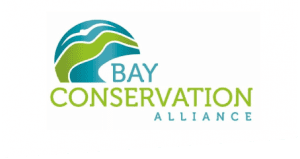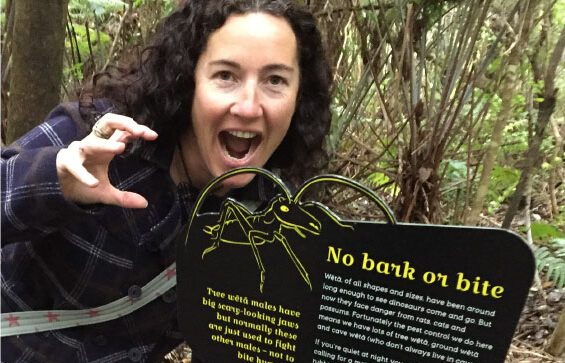An interview with… Michelle Elborn
This month TMBC got to chat to Michelle Elborn, CEO of Bay Conservation Alliance about our new Cadet Programme, our efforts to grow community conservation and why she fell in love with New Zealand twenty years ago.
Here’s how it went….
How does BCA go about supporting and sustaining community led environmental restoration and nature conservation?
Our role is to help keep the energy and passion flowing through our member groups and help ignite new participation and collaboration. There is an incredible army of volunteers striving for great conservation outcomes across many different sites in the Bay of Plenty. A key role for Bay Conservation is to help connect those groups to share and learn from one another’s super powers, to form a louder collective voice for nature and to support their ongoing operations with efficiency gains in mind. A big focus for us is the provision of shared support services. These cover areas like day to day financial systems, fundraising, marketing and selling stories, policy development and health and safety planning and education. We bring our members together for workshops on areas of relevance like pest control, iwi engagement or financial management. But ultimately we want to support and grow the efforts of community conservation to achieve larger landscape scale conservation outcomes in our region.
BCA has an opportunity to train 150 cadets over the next five years as part of the Bay Conservation Cadet Programme, what will that involve?
We are very excited about this new opportunity supported by government COVID-19 recovery funding, enabling jobs for nature. We believe it is important to equip people with the right skills and knowledge to have a positive impact on our natural environment. So, Bay Conservation Cadets – Tauira Mahi, is a new employment, training & development programme that will train 150 adult cadets over five years. The programme will run three times a year for 12 weeks, with 10 new cadets participating in each paid programme. Cadet training will include a wide range of skills and certificates including Growsafe, outdoor first aid, pest control, GPS, all increasing longer term employability. The programme will have a large experiential learning component where cadets will undertake work at Bay Conservation member group sites, on behalf of council’s or DOC or alongside key partners. This presents meaningful work experience with real conservation outcomes. The programme will also provide support for cadets to gain longer term employment after the 12-week programme. This is an incredible opportunity for the Bay of Plenty. The restoration of our natural environment is central to the health and well-being of our community and our native biodiversity and this presents a great way to mobilise new people into the environment sector. Programme planning is underway now and we will host our first intake in late January 2021. If you would like to know more, please click here to send Michelle an email.
What do you think are the biggest biosecurity challenges at the moment?
I guess the biggest challenge is wide public awareness and ensuring we have ability to respond fast. Biosecurity challenges are likely to keep coming with climate change and a hugely interconnected world. Biosecurity and biodiversity are also interrelated and I think the average conservationist immediately thinks of animals pests incursions like rats, possums, mustelids as none of them originate in New Zealand. Removing them from the ecosystem is such a big part of conservation work given the significant damage they cause through predation on our native species, impacting our vegetation and spreading disease. Plant pathogens like kauri dieback and myrtle rust are a big worry also. Given the Bay of Plenty has the southern most stand of kauri currently free of dieback, we need to work hard to keep it that way.
What activities do you see making a difference?
Education and awareness is fundamental. I love the aspiration of a team of 5 million and we need to equip the team with knowledge and skills, so they feel confident and empowered to play a part in the solutions.
When not working, how do you like to spend your time?
I thrive being by the ocean. That’s a big reason for leaving north London nearly 20 years ago – the surf is better here! I fell in love with New Zealand and enjoy exploring in our VW Kombi with my family.




